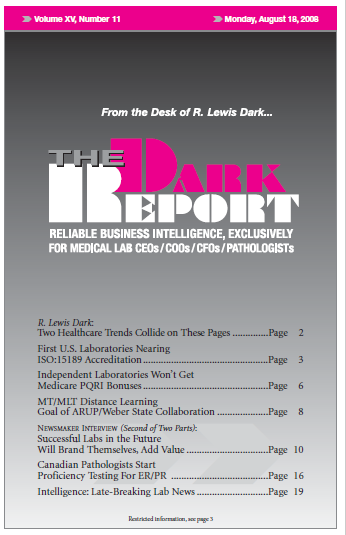“There is an opportunity for the laboratories to become more proactive with health plans. Pathologists are reading the literature and know specifically which diagnostics tests should be performed before expensive imaging procedures are ordered.” —Kerry Kaplan, President, Healthcare Connections CEO SUMMARY: At the most recent Executive War College, Kerry Kaplan, President of Healthcare Connections in …
Successful Laboratories in the Future Will Brand Themselves, Add Value Read More »
To access this post, you must purchase The Dark Report.


